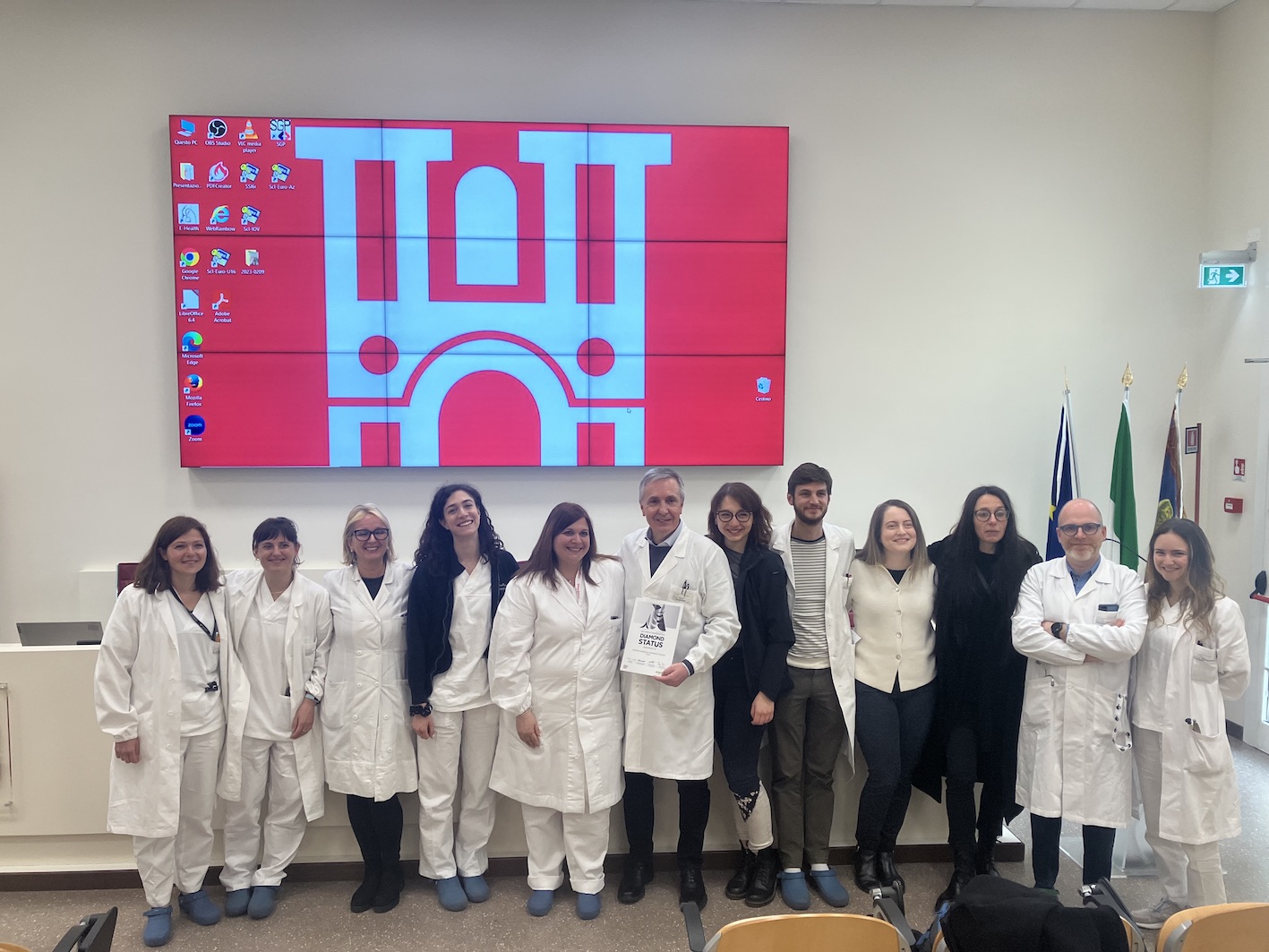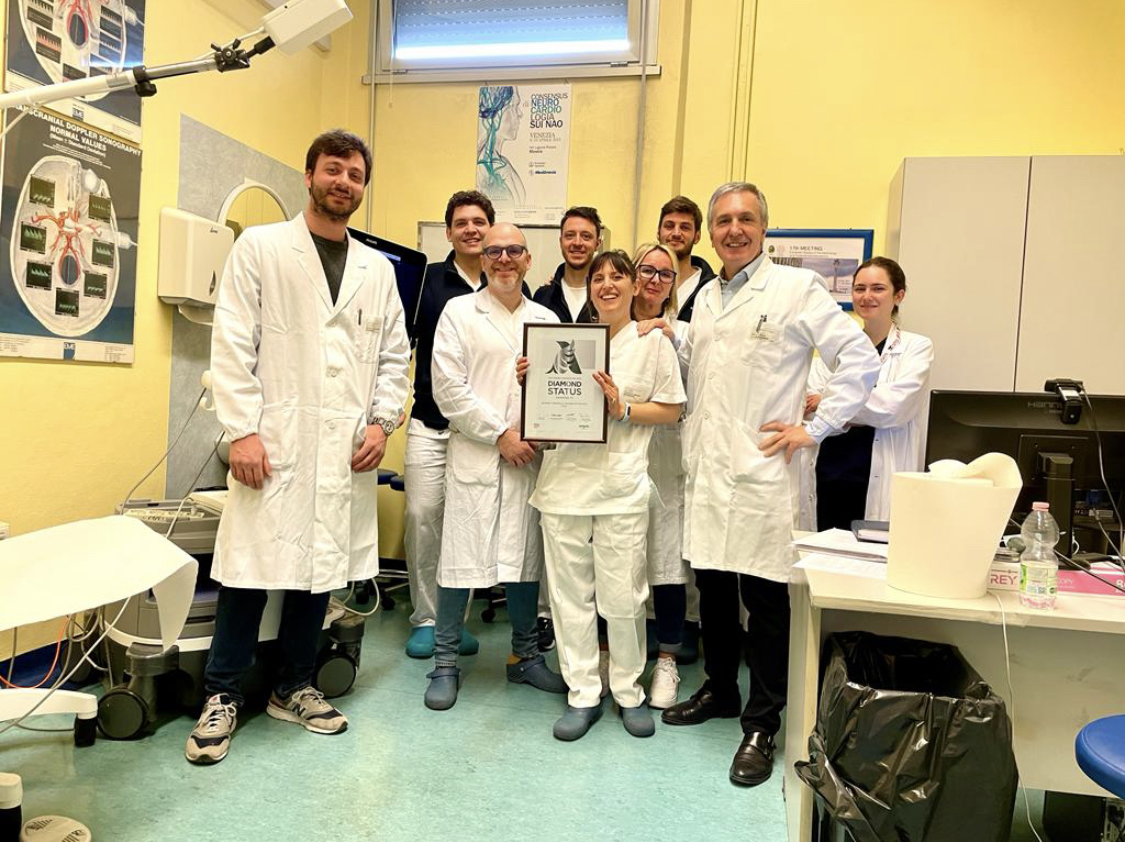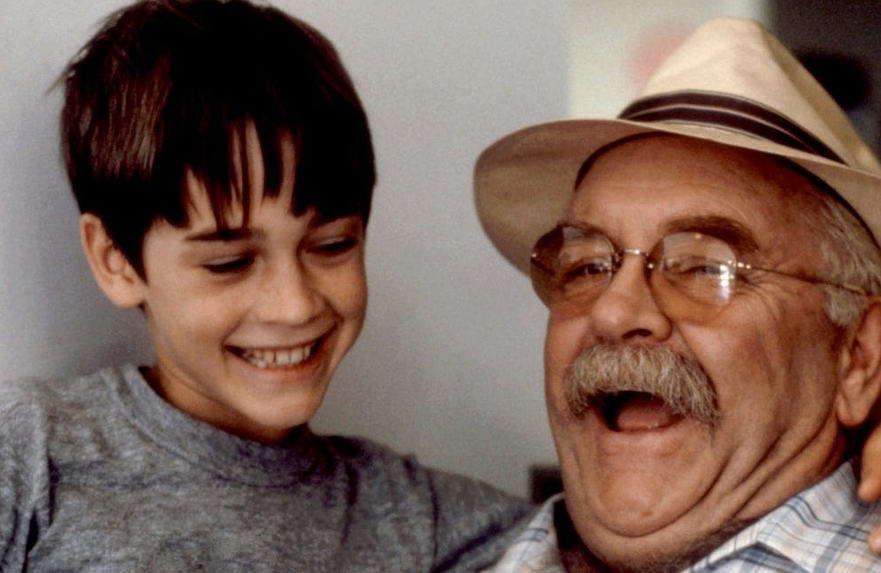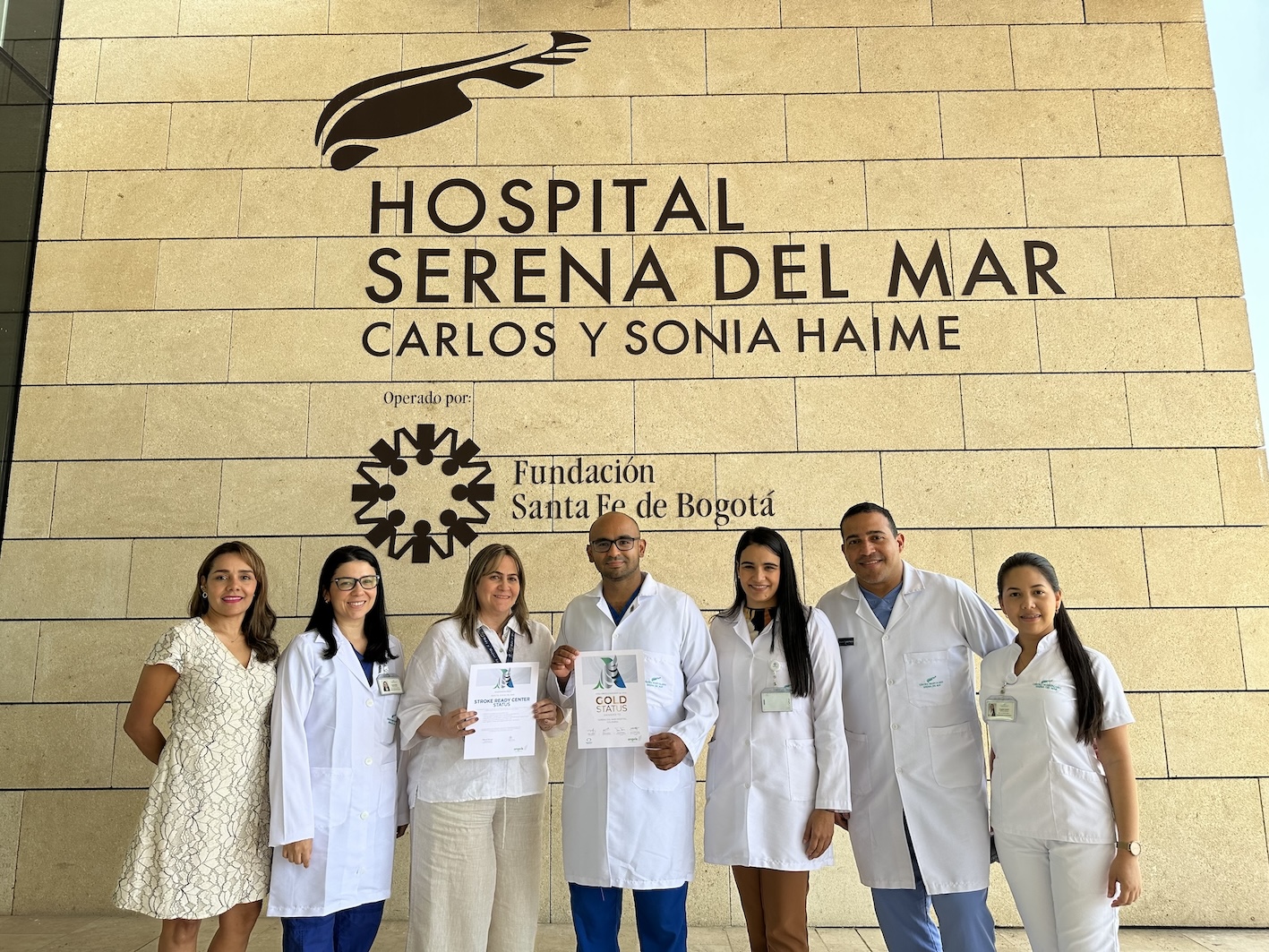
A Unidade de AVC no Hospital Universitário de Pádua é uma unidade de cuidados semi-intensivos dedicada à gestão e tratamento de doentes com doenças cerebrovasculares agudas. Com apenas quatro camas monitorizadas, é o centro de referência da cidade de Pádua (330.000 habitantes) e da sua província (1 milhão de habitantes), localizado perto de Veneza, no nordeste de Itália.
Em 2022, o Hospital Universitário de Pádua ganhou o seu primeiro prémio diamante ESO Angels, graças à implementação de várias alterações estratégicas, incluindo ações prioritárias chave identificadas pela Angels.
Este prémio reconhece os esforços de todos os profissionais de saúde envolvidos na melhoria da gestão extra e intra-hospitalar de emergências cerebrovasculares: a equipa médica e de enfermagem da Unidade de AVC, os médicos e residentes da Clínica Neurológica, o “118” (ou seja, o Serviço Médico de Emergência Italiano), o Serviço de Urgência, Medicina Laboratorial, bem como Radiologia, Neurorradiologia e a nossa Unidade de Cuidados Neurointensivos.
Em junho de 2022, a via de cuidados de diagnóstico e terapêuticos para a gestão do AVC isquémico agudo foi atualizada. O objetivo era ultrapassar os desafios estruturais e organizacionais de um grande hospital de estilo pavilhão que tinha causado tempos de tratamento longos para doentes com AVC agudo, longe das normas internacionais. Os pilares do novo caminho, inaugurado em junho de 2022, foram a notificação imediata do código de AVC pelo EMS italiano, a administração de tratamento trombolítico na sala de TC perto da emergência e o estabelecimento de um sistema de monitorização de controlo de qualidade.

Observamos que a notificação pré-hospitalar pelo pessoal do EMS pode mobilizar os recursos do hospital recetor antes da chegada do doente. Em particular, o neurologista vascular que coordena a equipa de AVC está agora presente na “área vermelha” do serviço de urgências à chegada do doente. Isto permite uma avaliação clínica rápida e transporte imediato para a sala de TC, onde a trombólise intravenosa é iniciada quando indicada. Se a imagiologia cerebral avançada identificar um doente elegível para trombectomia mecânica, o neurologista vascular ativa um transporte direto para o conjunto de angiografia.
O estabelecimento de um sistema de monitorização de controlo de qualidade, com verificações diárias das métricas temporais e auditorias internas em caso de fraco desempenho, deu uma grande contribuição para a identificação de pontos críticos no nosso percurso de AVC e levou a uma implementação de estratégias melhoradas.
A adopção deste novo protocolo levou a um aumento significativo no número de doentes submetidos a reperfusão urgente e reduziu o tempo entre a chegada ao hospital e a TC cerebral (porta-a-TC) e entre a chegada ao hospital e a trombólise, ou seja, o tempo porta-a-agulha (DTN). Após apenas algumas semanas, o tempo DTN foi de 60 minutos e o tempo porta-a-virilha foi de cerca de 120 minutos. Em seguida, melhorámos ainda mais, tratando pelo menos 50% dos doentes com trombólise em 45 minutos e iniciando o procedimento endovascular em 90 minutos, alcançando assim os padrões de tratamento ideais exigidos pelo programa dos Prémios Angels. Mas mais importante do que o estatuto de diamante, as melhorias garantiram um melhor serviço aos nossos cidadãos.
Nos próximos meses, de acordo com os nossos Administradores Hospitalares, iremos implementar mais passos que irão certamente beneficiar os nossos doentes, nomeadamente a aquisição de pessoal mais especializado (neurologistas vasculares) necessário para garantir um serviço de AVC 24 horas por dia, 7 dias por semana, e o estabelecimento de uma Nova Unidade de AVC com um número adequado de camas (12) para a nossa área de cobertura.
O nosso objetivo é manter estes resultados ao longo do tempo, de modo a garantir a todos os doentes o melhor tratamento e os melhores resultados possíveis.




